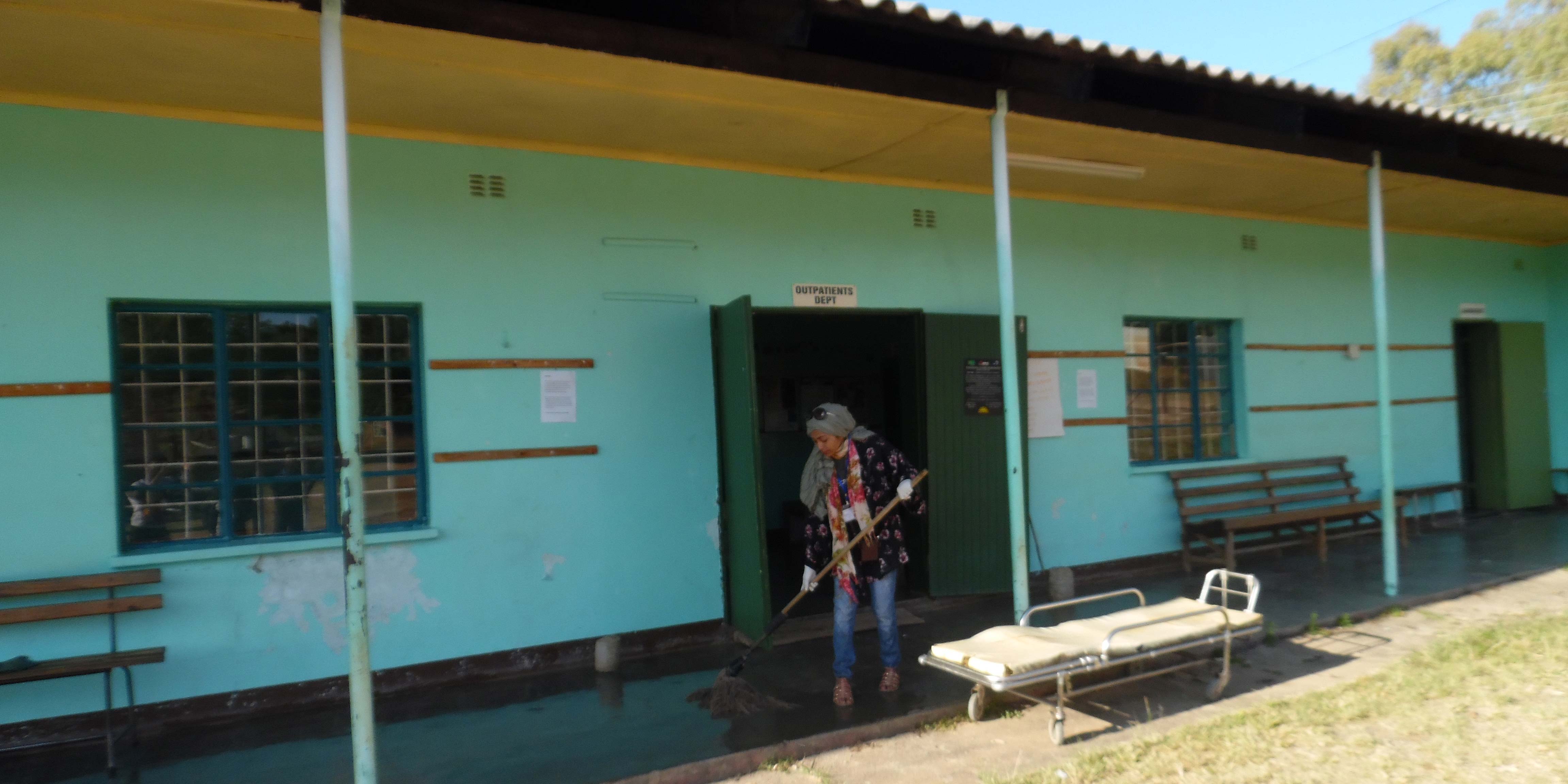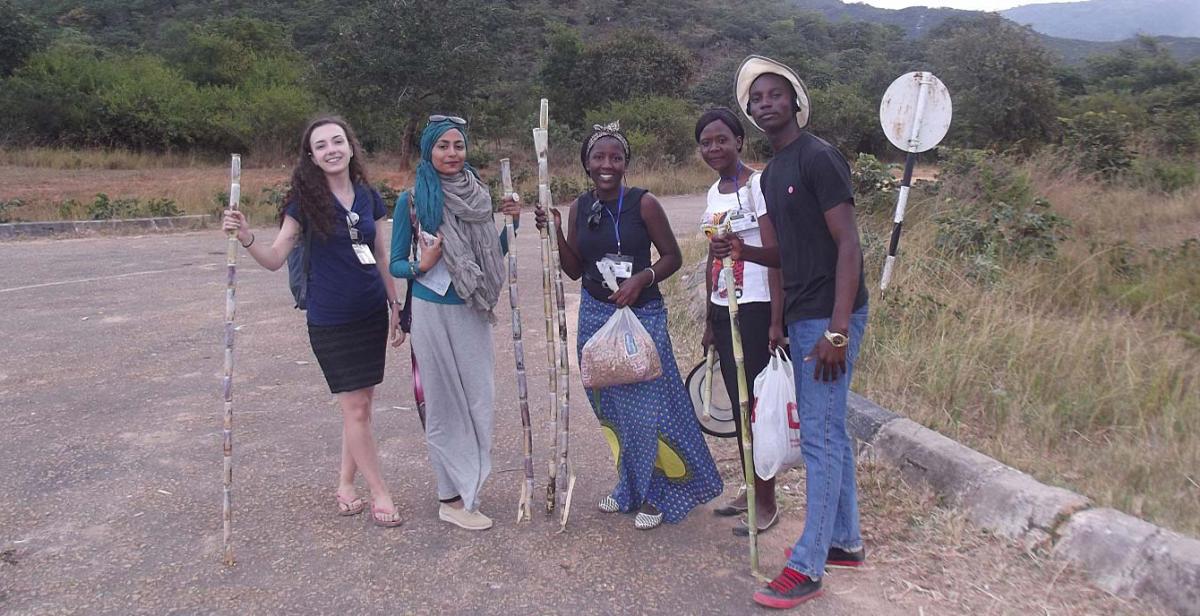“Makadini” (How are you? - My favourite Shona word, or probably the only Shona word I remember!).
We are in our fifth week in Nyanga, Zimbabwe. I can’t believe we have been here for over a month! It has been a dream of mine to volunteer in a developing country for as long as I can remember. So far, it has been such an overwhelming experience. The people here are so positive you almost forget for a while how much poverty the community is in. Despite the majority of the community members lacking in basic needs, they still have lots of laughter and smiles to share!
One of my reasons for volunteering was to contribute to a positive change in the health awareness field. Before I decided to volunteer, I was aware of the high levels of diseases and illnesses in some parts of Africa. HIV & AIDS in particular caught my attention, as this is one of the illnesses that has a very high prevalence in Zimbabwe. Statistics from the year 2013 suggest there are around 1.4 million people in Zimbabwe living with HIV. Out of them approximately 1.3 million are individuals from the ages of 15 years and over and around 170,000 children aged 0 – 14 years are living with HIV. To get a better understanding of HIV in Regina, Nyanga, I decided to visit the hospital near to our team house (getting to some serious work now!).
To my surprise, I discovered the rate of HIV is dropping significantly since 2002. Mr Chakandinakira, the Health Information Officer, informed me that there has been a big reduction in HIV throughout the years due to the use of health interventions. He said there is an ongoing health awareness campaign at the hospital, which encourages individuals to be tested for HIV free of charge. Through this awareness campaign, the community is informed about the interventions that are available for them. Mr Chakandinakira believes the interventions that helped the most were introducing family planning for HIV patients and general health education in the community. The use of condoms was introduced through these family planning sessions. The condoms are free for the HIV patients; they are voluntarily taken and are distributed by the Ministry of Health.
Although the rates of HIV are showing a great level of reduction in Regina compared to previous years, the total number of patients with HIV positive is still staggeringly high. When I looked at the reported cases of HIV at Regina Hospital for April 2008 to April 2015, I found that 1099 patients received ARV drugs (antiretroviral), as they are HIV positive. This figure is still very high, meaning more needs to be done to help reduce the number.

Our team has been working with various support groups, which include individuals who are HIV positive. The aim of the support groups is to help their income through the businesses that they currently own or in the future may run. We have also been working towards improving nutrition of individuals with HIV & AIDS through nutritional garden. These nutritional gardens are provided by DOMCCP (Diocese of Mutare Community Care Programme) for people with HIV & AIDS and can be used to grow various fruits and vegetables. As a team, we have planned to carry out workshops in schools with various age groups about HIV & AIDS. We also plan to cover other illnesses such as malaria and typhoid, and health awareness campaigns about nutrition and hygiene. I believe this will help to raise a greater level of awareness about health and wellbeing amongst the young people in Regina.
Additionally, the HIV report from April 2008 - April 2015 also highlighted there are only two ways of getting tested for HIV in Regina, (1) testing pregnant mothers when they come for a scan and (2) voluntary counselling testing - where individuals voluntarily come to the hospital for testing. The advantage of testing pregnant mothers is that their HIV status can be discovered - if the mother is HIV positive, further drugs can be given to prevent the baby from developing HIV. Furthermore, the hospital also encourages the fathers to be tested at the same time. Taking into consideration the limited ways of testing individuals for HIV, we have decided to hold some mobile clinics at Regina and other wards for free HIV & AIDS testing. I feel holding mobile clinics will benefit the community as it will be more accessible to them.
Before leaving the Regina Hospital I decided to ask Mr Chakandinakira; ‘what does he think people as individuals can do to contribute with the reduction of HIV & AIDS?’. His answer was simple; he believes each one of us has the ability to make a change through small actions, which I agree with wholeheartedly. Sometimes we may feel we are not making an impact because our actions are small. However, if each one of us did these small actions together, such as reaching out to the community and raising awareness about various health issues, maybe we can help to change the world for better!
This is Sadia signing off, wishing for better health around the world!
“Musare Zvakanaka” (Goodbye - Thanks to Ngoni for the second Shona word ha!)
Written by ICS volunteer Sadia Lira



